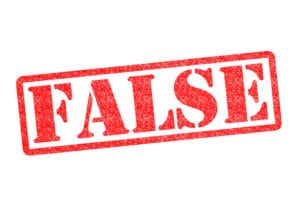
Thanks for joining us again to talk about this very difficult, but very important subject. If you or a loved one have been falsely accused of abusing or neglecting a child, then you already know how terrible it feels to be lied about. To be publicly accused or something that you didn’t do. Something that you would never have done, not in a million years. Because you were smart, you went and got yourself the best attorney you could find. Good job – now you are armed for battle, but there is still fighting ahead. A battle that needs to be won. So what do you do next?
-
Acknowledge the importance of what is happening here!
First, please remember that false allegations are only considered to be false by the police and the prosecutor’s office if they are proven to be lies. Otherwise they are simply assumed to be truth. For this reason, we urge you to take this very, very seriously! After all, the people working hard to convict you and put you in prison are taking it very seriously. You should do no less.
It’s easy to make the mistake of thinking that because you’re innocent, the charges aren’t really serious, or won’t be carried through to the point of conviction. Sadly, that is almost never the case. This is not a joke, and you need to treat it with the gravity and sobriety it deserves. Brushing it off, or refusing to engage and fight for your rights could land you in prison for life. Innocent or not, you CAN be convicted of a crime you didn’t commit and sentenced to prison. So don’t make the mistake of not taking this seriously and end up as a tragic statistic.
-
Silence is critical, so don’t talk to anyone about your case!
You have the right to remain silent under the law. USE that right! It is very important that you not answer ANY questions asked by police officers, detectives, investigators, social workers, CPS case workers or ANYONE else who wants to discuss your case. This may seem like strange advice. After all, if you are innocent, you should be free to tell others about how you’ve been falsely accused, right? Wrong!
That may make sense out in the rest of the world, but in the legal world it couldn’t be more incorrect. Far too many people have been told that they will be believed and treated fairly, if they are only willing to tell their side of the story. Later, however, they discover that an officer or social worker is claiming that they ‘made a confession’. Their words will be twisted, taken out of context, and used against them.
It doesn’t matter how friendly, helpful or understanding they appear to be, or how convincingly they promise you that it’s “just a little misunderstanding that needs clearing up.” DON’T SAY ANYTHING. Politely request your attorney, and say that you are choosing not to comment without your attorney present. Then keep your lips sealed until we arrive. Also, don’t talk to your friends, family, or clergy about the case. The ONLY person you should be talking to is your attorney. Seriously! Do not talk to anyone else under any circumstances without getting explicit permission from your attorney first!
Join us next time, when we will be looking at the next item on our list of very important things you need to remember during the course of this painful and difficult time. It may seem like this advice is too hard to follow, or doesn’t make sense. Perhaps you feel that it doesn’t apply to your case. We cannot stress this enough – it does! We have been doing this for decades and there is not a single case we have ever handled that was not helped by silence on the part of our client. Please, call us immediately at 517-886-1000, and then don’t talk to anyone else!


